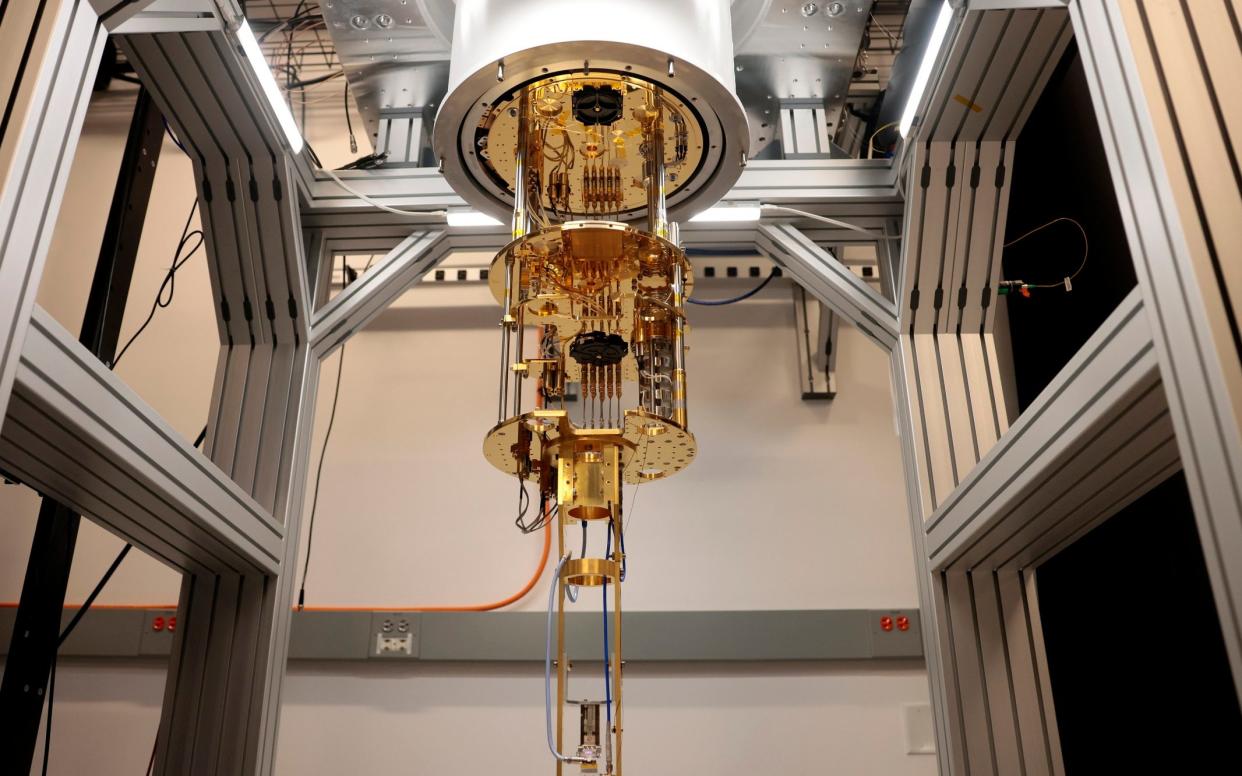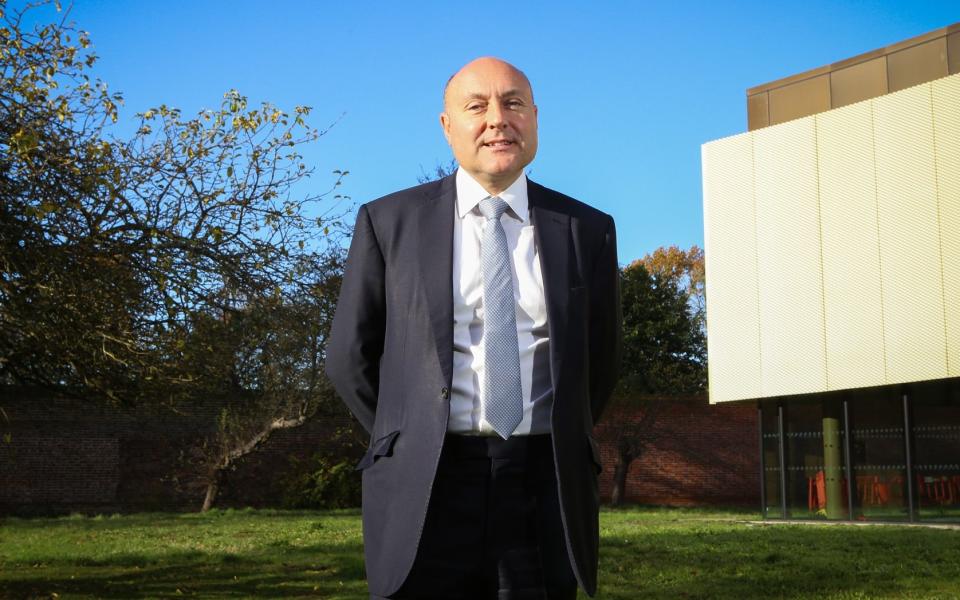Ministers plough £2bn into making quantum technology ‘Britain’s ChatGPT’

- Oops!Something went wrong.Please try again later.
Britain is investing £2.5 billion in quantum technologies in the hope it can provide a ChatGPT-style boost to the economy and protect against spies, the Science Minister has said.
The chatbot – designed by OpenAI – catapulted artificial intelligence apps from a niche topic into the mainstream almost overnight.
Following the launch of the technology, AI quickly became a priority for businesses and the transformative nature of quantum could be even larger, experts say.
Andrew Griffith, the newly appointed Science Minister, has outlined a ten-year goal piggybacking on the Autumn Statement, which will put quantum technology at the forefront of a plan to commercialise science.
Quantum has the ability to break current encryption and create incorruptible communication networks for defence purposes, while quantum clocks and sensors can revolutionise everyday applications like Sat Navs, mobile phones and healthcare screening.
The Government’s strategy aims to have quantum computers and networks running by 2035 – and it is also hoped the technology will provide the NHS with new-era tests by 2030.

Quantum technology manipulates the quirks of quantum physics to perform a huge number of processes simultaneously so that it can tackle tasks a conventional computer could not.
Mr Griffith extolled the possibilities of quantum in an exclusive interview with The Sunday Telegraph at the National Physics Laboratory, his first since starting his new role after being City Minister in the Treasury.
He hopes to use his experience as a high-flying executive in the City and time in the Treasury to boost private investment in the quantum sector to ensure Britain’s research translates into commercial products, much like America with ChatGPT.
Mr Griffith said: “What I’m looking to do is to use my background in the City to try and make what I’ve called ‘the twin suns’ work.”
“We’ve got a fantastic financial centre in the City of London which is a big part of our economy and we have a fantastic science and innovation research base. If we can make those two suns work in orbit together then that will really help achieve the Prime Minister’s vision of the UK as a science and technology superpower.”
Quantum, he said, is one of the priority areas for both public and private investment, adding that the UK is in pole position to flourish when the quantum revolution comes.
“A big focus that I think we’re going to see a lot of pickup on over the next couple of years is quantum. It is one of the places the UK is world-leading,” he said.
“I suspect that in the next couple of years we’re going to be talking a lot more about quantum in a similar way to what happened with AI thanks to ChatGPT.”
Quantum Strategy
Translating successful start-ups and technology into commercial success is where the UK has struggled in recent years and part of the new Quantum Strategy is to have more graduates and money available to nurture innovations.
Public money, including from pension fund investment, will be key to this, Mr Griffith said, with new regulation freeing up capital to invest in “brilliant science and technology scale-ups”.
“That is why I came here; that is why someone was moved across from the Treasury to this brief,” Mr Griffith told The Telegraph.
China is around 15 years ahead of the UK with its quantum capabilities, Alessandro Fedrizzi, a professor of engineering and physical sciences at Heriot-Watt University, told MPs in November. He is working to create quantum encryption that can be sent globally.
One important commercial avenue of quantum is defence and protecting nation states, and companies, from having their data decoded and hijacked by enemies.
“[National security] is very important, as in any area of strategic capability,” Mr Griffith said.
“There is an element to which quantum strategy also ensures that the UK has strategic competence in quantum.”
Dr Peter Thompson, CEO, National Physical Laboratory (NPL), said the technologies, which are still in their infancy, “are about economic prosperity, but they’re also about national security”.
He added: “We have to invest in these emerging technologies so that you can gain the benefits and you can mitigate threats.”

